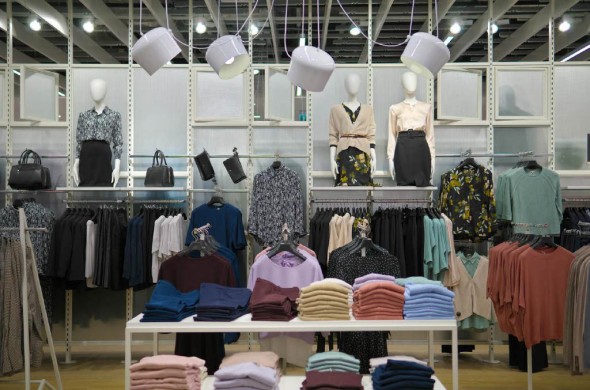There's no doubt that millennials have grown up in a very different environment than the previous generations.
Born between 1981 and 1996, they are the first generation to grow up with digital technology and social media, and the changes they have seen make them a powerful force when it comes to shaping consumer trends.
They have unique needs and desires, and they are not afraid to voice them. Many millennials are so influential that companies are starting to cater their products specifically to this generation.
So what trends can we expect from the first generation to grow up online in the fast-moving consumer goods (FMCG) space?
Why do millennials buy?
There are several factors that influence what millennials purchase. In the golden age of information, where everything is known, they can actively seek out products and brands that reflect their values.
The digital era, with its constant demands and distractions, has made millennials time-poor, which means that they value convenience and simplicity highly.
But there is one factor that has shaped this generation in every aspect of their life, including their consumption habits, and that's social media.
In a world where everyone has constant access to what others are sharing online, it's no wonder that millennials are so influenced by what they see on social media. User reviews or influencer recommendations are often more trusted than traditional marketing techniques.
Online versus in-store shopping
With so many shopping options in the palm of their hand, many analysts anticipated that millennials would be the generation that would shut down all brick-and-mortar stores in favor of the ease of online shipping. The pandemic, with its forced lockdowns, looked like it would accelerate this change even further.
But now that restrictions are lifted, and we're free to move around and shop wherever we like, consumers seem to be flocking back to physical stores, including millennials. In fact, many retailers are reporting that their in-store sales have recovered to pre-pandemic levels or are even higher, with some countries experiencing a frenzy of consumers trying to catch up with all the missed opportunities for consumption from last year.
One important note is that although in-person shopping looks like it's here to stay, all of the pre-purchase research is being done online, often on mobile phones. Millennials will check out the products they want before they have to commit to buying, which is why FMCG brands must nurture and build their online presence and be mindful of how consumers could perceive them.
Health and sustainability as top of mind
These last few years have brought an increased focus on health, and millennials are at the forefront of this trend. They are far more likely to seek out healthy options and be mindful of what they're putting in and on their body.
They're also the generation that grew up hearing about recycling and climate change, which means that sustainability is second nature to them. In fact, sustainability is now one of the main criteria that millennials use when choosing what to buy.
Millennials expect FMCG brands to be transparent and proactive about communicating their environmental efforts, and they're willing to spend a little bit more and sacrifice a bit of convenience in order to have a more eco-friendly product that puts their mind at ease and makes them feel that they're doing their bit to help.
Delivery and fulfillment services
Although physical stores aren't going to go away soon, there's still a large share of purchases being made online. What's more, millennials are more inclined to buy products directly from brands instead of in-store, which means that brands need to have a well-functioning eCommerce website and a streamlined fulfillment and delivery infrastructure.
Brands also need to make a significant effort to create a good impression. To nurture the newer generations of consumers, they need to have creative, consistent, and appealing social media channels, as well as online loyalty programs and rewards to build trust and loyalty with consumers in the online world.
How can brands and retailers capitalize on millennial consumer trends?
As consumers become more connected, demanding, and picky, some brands are having a hard time keeping up. But there's one invaluable tool that this digital era has gifted to manufacturers, and that's data.
With millennial consumers accustomed to the need to share their personal details in order to make any purchases or have any meaningful interactions in virtual spaces, previously unimaginable mountains of data are available at your fingertips.
This data provides critical insights at every point of the consumer journey. Brands now have instant access to what consumers want, what they value, what their needs are, and what they'll be likely to purchase now or in the future. All of this information allows for a much more personalized product range, targeted marketing efforts, and real-time course corrections.
This data also allows brands to offer more personal, tailor-made, and unique products that appeal to millennials. They can turn shopping into a whole experiential event that engages all the senses and captures consumers' imagination, rather than limiting themselves to a purely functional purchase. And millennials are willing to pay for customized goods and a premium experience that makes them feel unique.
What happens with Generation Z?
The generation after millennials is Generation Z, born from 1997 to 2012. They are the first true digital natives, and they have even more specific needs and expectations than their predecessors.
While millennials grew up with the internet, Gen Z grew up with mobile devices and social media.
They are used to getting what they want when they want it, and they expect the same level of convenience from brands.
What's more, Gen Z is even more focused on sustainability and health and wellness than millennials. They are more inclined to look for brands that share their values and that they can trust, which is why FMCG brands need to have top teams managing their social media.
Navigating times of change is never easy for any business, and that's especially true for FMCG brands and retailers, who have never seen the fast pace of innovation and social transformation that we see in this post-pandemic world.
If they learn to navigate the digital world, engage with millennials on the platforms where they're at, and speak their language, they will be able to tap into the massive potential of this super-connected, super-demanding generation of consumers.
Brands with clear values that inform every part of their activity and that can learn to leverage big data to offer exactly the type of custom, flawless online experiences that millennials are looking for will be the ones to come out on top in this new millennial digital landscape.
Consumer Goods Consulting
At Ollen Group, our strategy consultancy services are up to date with consumer shifts in the Middle East, and the necessary steps needed to find success in the future. Whether you work in FMCG, food and beverage, beauty and cosmetics, or appliances and electronics, among others, Ollen Group consumer goods consultancy services offer turnkey solutions from strategy to execution, as well as design, development, and deployment.
Read our latest insights, ideas, and perspectives that explore the trends shaping the future of business and society. Our consultancy services go hand-in-hand with these insights, confirming our position as industry leaders. Get in touch to find out more about our consulting services and industry expertise.



